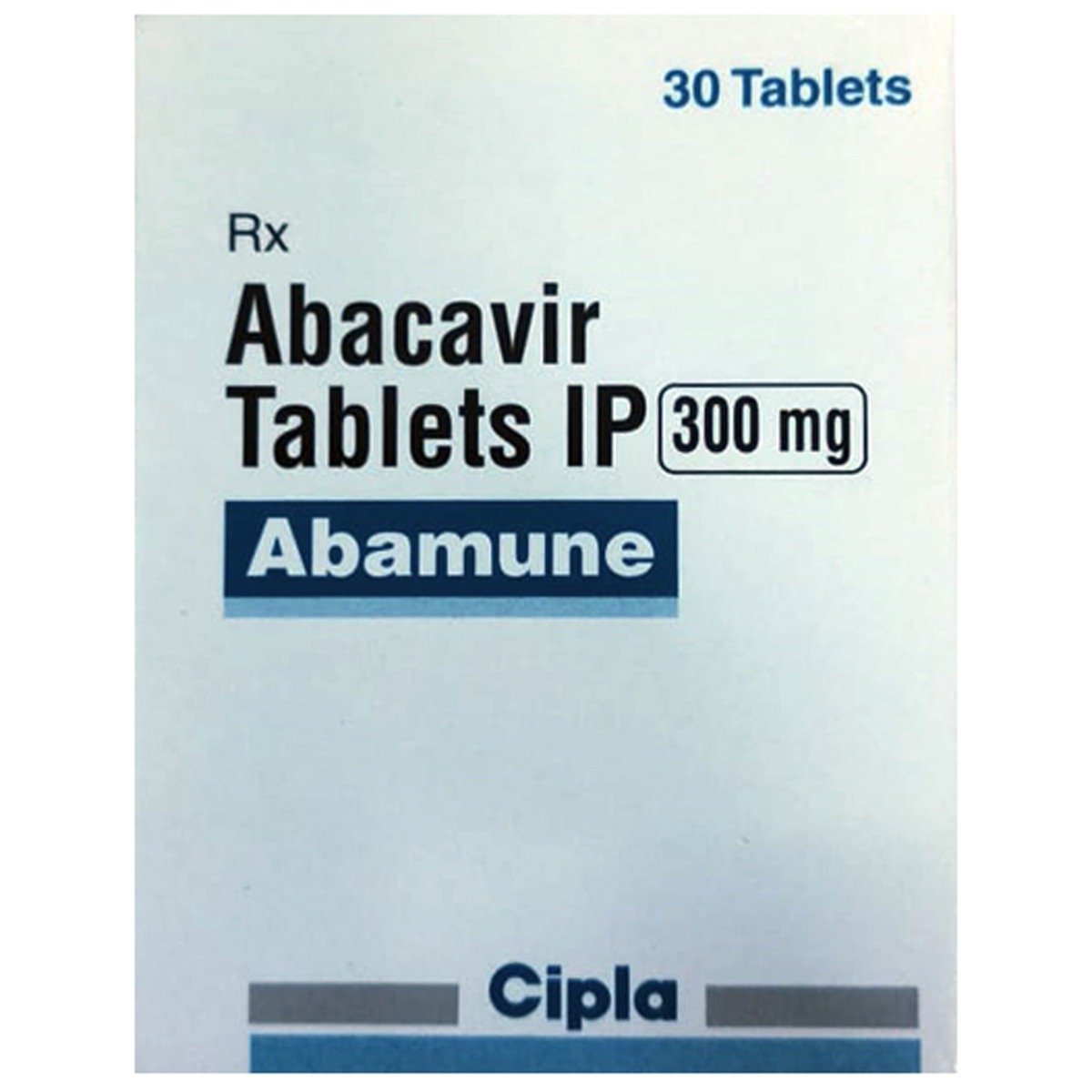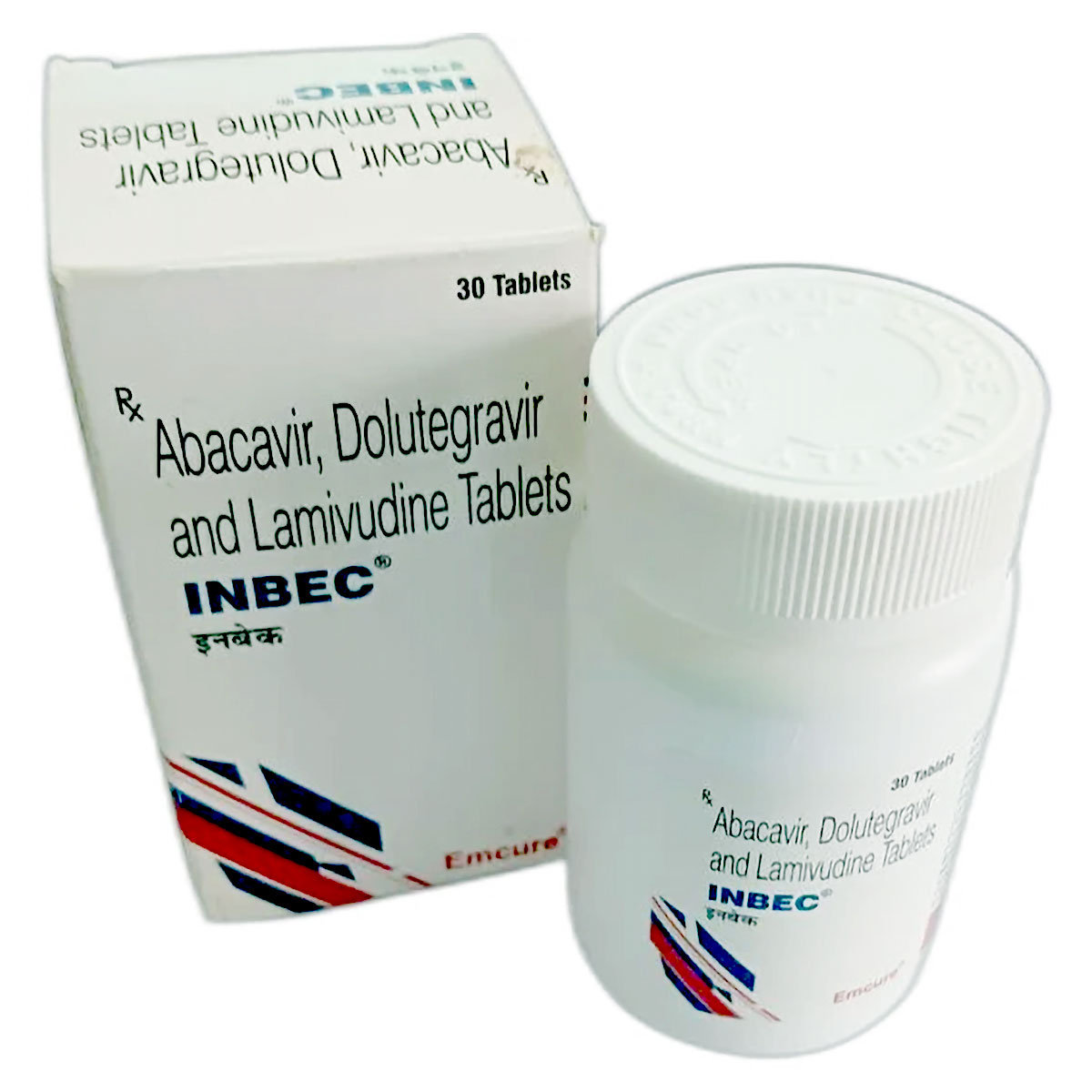Abacavir
About Abacavir
Abacavir belongs to a group of anti-retroviral medicines indicated for the treatment of HIV infection. HIV (Human Immunodeficiency Virus) is a virus that attacks the immune system and destroys the white blood cells that help in fighting infection, making the individual susceptible to other infections or illnesses.
Abacavir contains ‘Abacavir’, which works by decreasing the amount of HIV in the blood. It also increases the count of CD4 cells, a type of white blood cell that helps the body to fight infections.
In some cases, Abacavir may cause common side effects such as nausea, vomiting, headache, diarrhoea, loss of appetite, and tiredness. Most of these side effects do not require medical attention and will resolve gradually. However, consult your doctor if the side effects persist or worsen.
Abacavir does not prevent the spread of HIV infection; hence, practise safe sex and other necessary precautions. Abacavir is not recommended for use during pregnancy. Keep your doctor informed about your health condition and medications to prevent side effects/interactions.
Uses of Abacavir
Medicinal Benefits
Abacavir belongs to a group of anti-retroviral medicines called nucleoside analogue reverse transcriptase inhibitors (NRTIs) indicated for the treatment of HIV infection. Abacavir contains ‘Abacavir’, which works by decreasing the amount of HIV in the blood. It also increases the count of CD4 cells, a type of white blood cell that helps the body to fight infection.
Directions for Use
Storage
Side Effects of Abacavir
- Nausea
- Vomiting
- Loss of appetite
- Diarrhoea
- Headache
- Tiredness, lack of energy
- Fever
- Skin rash
Drug Warnings
Do not take Abacavir if you are allergic to its components. Inform your doctor if you have hepatitis B or C, are overweight, have high blood pressure, diabetes, heart, kidney or liver problems or if you smoke. Talk to your doctor if you develop bone problems, infections or inflammation. The safety and effectiveness of Abacavir in children below three months have not been established. Abacavir is not recommended for use during pregnancy and breastfeeding.
Drug Interactions
Drug-Drug Interactions: Inform your doctor if you are taking narcotic analgesics (methadone), antibiotics (rifampicin), anti-convulsants (phenytoin, phenobarbital),
Drug-Food Interactions: No interactions found/established.
Drug-Disease Interaction: Inform your doctor if you have moderate or severe liver disease, hepatitis B or C, are overweight, or have severe kidney disease.
Drug-Drug Interactions Checker List:
Safety Advice

Alcohol
unsafeAvoid consumption of alcohol while taking Abacavir as it may have the risk of developing Osteonecrosis (a condition in which parts of the bone tissue die because of reduced blood supply to the bone).

Pregnancy
cautionAbacavir is generally not recommended for use in pregnancy. If you are pregnant, inform your doctor before taking Abacavir. There are limited data available on the effect of this medicine in pregnancy. Animal studies have shown carcinogenic effects.

Breast Feeding
unsafeAvoid breastfeeding while taking Abacavir. HIV-positive women must not breastfeed as HIV infection can be passed to the baby in breast milk.

Driving
cautionDo not drive or operate machines if you are not alert after taking this medicine.

Liver
cautionAbacavir is primarily metabolised by the liver. No dose adjustments are necessary for patients with moderate liver impairment. If this medicine is taken in moderate liver conditions, close monitoring of liver functioning is needed. In individuals with moderate or severe hepatic impairment, abacavir should not be used unless absolutely necessary as no clinical data are available.

Kidney
cautionIf you have kidney disease, inform your doctor before taking Abacavir. Your doctor may adjust the dose if necessary based on your condition. This medicine is not recommended if you have severe kidney disease.

Children
cautionThe safety and effectiveness of Abacavir in children below three months have not been established. For children above three months, the dose, dosage form and duration will be determined by the doctor based on the child’s body weight.
Habit Forming
Diet & Lifestyle Advise
- Practise safe sex by using condoms; it helps in reducing contact with semen and vaginal fluids.
- Never share personal items that can have body fluids or blood on them, such as razor blades or toothbrushes.
- Avoid sharing used needles, other injections or drug equipment.
- Eat a healthy and balanced diet. Eat vitamin and nutrient-rich food such as vegetables and fruits as it helps to boost your immune system. Opt for lean protein and whole grains.
- Avoid eating raw meat and eggs. Consume properly boiled and cooked meat, poultry or seafood.
- Eat bland and low-fat foods, and avoid spicy or oily foods if you experience nausea or vomiting.
- Try to reduce emotional and physical stress by spending time with your family or doing whatever makes you happy.
Special Advise
- Abacavir may cause a hypersensitivity reaction. The risk is higher in people with the HLA-B*5701 gene. Consult your doctor immediately if you develop a skin rash or if you develop symptoms from at least 2 of the following:
-fever
-shortness of breath, cough, or sore throat
-nausea or vomiting, diarrhoea or abdominal pain
-severe tiredness or generally feeling ill.
- Although the risk of passing HIV infection to others is lowered with effective anti-retroviral therapy, you can still pass it on to others. Therefore, take necessary precautions to avoid infecting others.
Patients Concern
Disease/Condition Glossary
HIV infection: HIV (Human Immunodeficiency Virus) is a virus that attacks the immune system and destroys the white blood cells that help in fighting infection, making the individual susceptible to other infections or illnesses. People with HIV experience flu-like symptoms such as fever, chills, rash, night sweats, muscle aches, tiredness, and sore throat. These symptoms usually last for days to several weeks. It spreads through body fluids such as semen, vaginal fluid, and blood. If left untreated, this condition can lead to AIDS (Acquired Immunodeficiency Syndrome). It is a life-long condition, and there is no definite cure for it. However, it can be controlled by treating it with anti-retroviral drugs.
FAQs
Abacavir works by decreasing the amount of HIV in the blood. It also increases the count of CD4 cells, a type of white blood cell that helps the body to fight infection.
Abacavir does not completely cure HIV infection. It reduces the viral load in the body and keeps it at a low level. Taking Abacavir decreases the chance of developing AIDS and HIV-related illnesses such as cancer or serious infections.
Abacavir may increase the risk of a heart attack. Therefore, inform your doctor if you have heart problems, high blood pressure, diabetes, or a habit of smoking.






